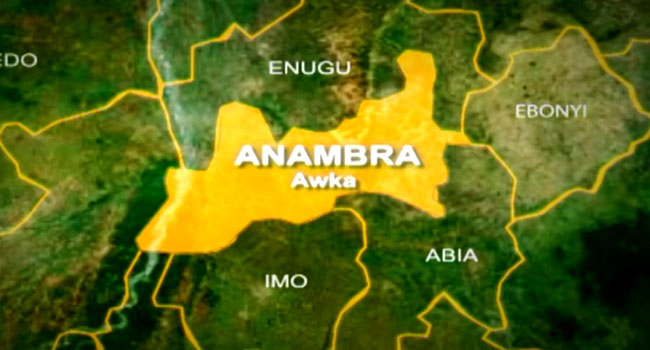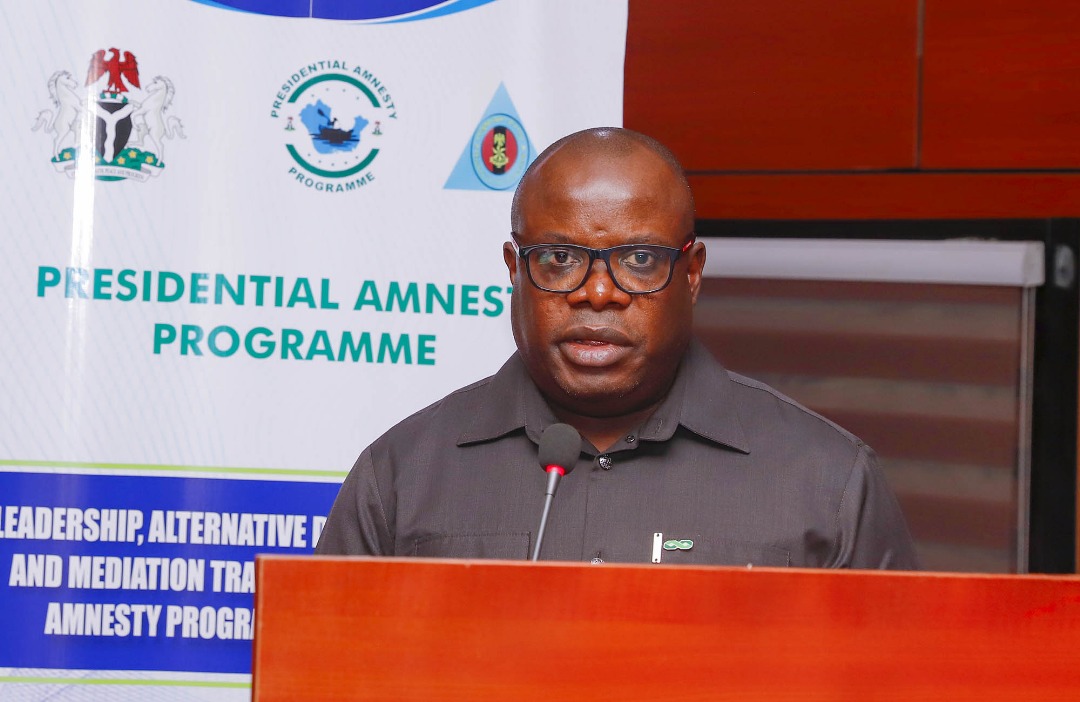News
Anambra Bans Public Almsgiving, Street Begging

The Anambra State Government has banned the distribution of food items and other gifts to street beggars in public spaces, particularly under the Aroma Bridge in Awka, the state capital, and other locations.
The state government also banned all forms of public begging, loitering, and street trading beneath the bridges in Awka, insisting that the move became necessary to uphold the dignity and order of the capital city, which is the face of the state.
A statement released by the Managing Director and Chief Executive Officer, Anambra State Capital Territory Development Authority, Ossy Onuko, on Thursday, stated that the directive is part of the state government’s efforts to sanitise the capital city and maintain public order.
Onuko said anyone found violating this new directive will be arrested and prosecuted.
READ ALSO: Police Arrest Four-man Kidnap Gang, Recover Three Vehicles, Other Items In Anambra
He, however, cautioned content creators, philanthropists, and charity groups against distributing food, cash, or any form of alms to street children and beggars in public spaces, particularly.
While acknowledging that some of the “charitable acts” were for good intentions, he expressed concerns that they are inadvertently contributing to the continued loitering and congregation of destitute individuals in dangerous locations.
He said, “The government has closely observed the activities of some content creators, philanthropists, and charity groups who encourage and sustain the indiscriminate roaming of children under the Aroma Bridge by consistently giving out food, drinks, and cash gifts to these kids.
“Although their intentions may be noble, they ultimately contribute to the degradation of the capital city and put the lives of these children at risk. These children are exposed to potential harm, such as being knocked down by vehicles, abused by unruly adults, or even recruited into criminal activities.
READ ALSO: Anambra Sanctions School Over Sale Of Head Prefect Position
“Such actions are illegal and we hereby warn that any individual or group found engaging in them will be seen as promoting civil disorder and will face legal action.”
He also advised that all charitable activities be conducted through accredited institutions, such as orphanages, care homes, and registered non-governmental organisations, where support can be provided in a more structured and secure manner.
Onuko further urged the general public to work with the state government to uphold the dignity and order of the capital city, which represents the face of Anambra State.
“Charitable acts should be channeled through accredited organisations such as orphanages, care homes, and registered NGOs, where support can be professionally administered to those in need.
“Alternatively, donations can be made to private homes and spaces that do not create public nuisances,” he added.
News
Former Delta North senator Peter Nwaoboshi Dies

Peter Nwaoboshi, the former senator representing Delta north, is dead.
Details of the circumstances surrounding his death were unclear at the time of this report, but according to reports, the former senator died in Abuja on Friday, aged 68.
In a statement, Sheriff Oborevwori, governor of Delta, expressed “profound grief” over the demise of the former lawmaker.
The governor described his demise as a monumental loss to the state, the Anioma nation, and Nigeria.
READ ALSO:Woman Taken For Dead Wakes Up Inside Coffin Few Minutes To Her Cremation
In a condolence message signed by Festus Ahon, his chief press secretary (CPS), Oborevwori hailed the late Nwaoboshi as a dedicated son of Delta and a bold champion of Anioma interests, whose legacy in nation-building will endure.
The governor said the late senator’s distinguished tenure in the national assembly, particularly as chairman of the senate committee on Niger Delta affairs.
“Nwaoboshi lived a life of service to his people, his party, and the country, bequeathing a heritage of bravery, loyalty, and commitment to public duty,” Oborevwori said.
READ ALSO:Fourteen Nigerian Banks Yet To Meet CBN’s Recapitalisation Ahead Of Deadline
“On behalf of the Delta State government and people, I mourn my dear friend, Senator Peter Onyelukachukwu Nwaoboshi.
“I extend deepest condolences to his family, the Anioma people, members of the All Progressives Congress, and everyone touched by his life.
“May God grant his soul peaceful rest and comfort to all who grieve this irreplaceable loss.”
News
Grassroots To Global Podium: Edo Sports Commission Marks Enabulele’s First Year In Office

The Indoor Sports Hall in Benin City came alive on Wednesday as the Edo State Sports Commission rolled out the drums to celebrate the first anniversary in office of its Executive Chairman, Hon. Amadin Desmond Enabulele. Management, staff, coaches and athletes gathered in an atmosphere charged with pride, reflection and optimism.
The colourful ceremony drew executives and members of various sports associations, officials of the Sports Writers Association of Nigeria (SWAN), coaches, athletes and other key stakeholders in Edo sports.
In her welcome address, the Acting Permanent Secretary of the Commission, Mrs. A. P. Amenze, praised Hon. Enabulele for what she described as focused and purposeful leadership. She said the past year had seen renewed confidence, discipline and energy return to the state’s sports ecosystem.
Adding excitement to the event were exhibition bouts and demonstrations by the Kung Fu, Karate, Taekwondo and Judo associations, staged in honour of the Executive Chairman.
READ ALSO:2025 NYG: Enabulele Charges Edo Coaches On Performance
Speaking for SWAN Edo State, Chairman Comrade Kehinde Osagiede commended Hon. Enabulele’s open-door leadership style and consistent support for sports development. He noted that the Commission had effectively driven Governor Monday Okpebholo’s “Catch Them Young” policy through practical grassroots programmes that identify and groom young talents across the state.
In recognition of his contributions to sports development and media relations, Comrade Osagiede conferred the Patronship of SWAN Edo State on Hon. Enabulele and presented him with a special anniversary card.
Goodwill messages followed from Executive Directors of the Commission, including Hon. Frank Ilaboya (Edo North), Coach Baldwin Bazuaye, MON (Edo South), Barr. Anthony Ikuenobe (Edo Central), and Mrs. Sabrina Chikere, Executive Director, Sports Development and Operations. Representatives of coaches, athletes and sports associations also took turns to acknowledge the progress recorded under the current leadership.
In his stewardship address, Hon. Enabulele expressed gratitude to Governor Monday Okpebholo and Deputy Governor Rt. Hon. Dennis Idahosa for the trust placed in him, noting that their backing and shared vision had driven the Commission’s achievements.
READ ALSO:Enabulele Lauds Okpehbolo For Creating Enabling Environment For Football To Thrive
He highlighted Team Edo’s third-place finish at the 9th National Youth Games in Asaba, where the state recorded its best-ever outing with 79 medals—33 gold, 18 silver and 28 bronze—reinforcing Edo’s reputation as a national sports powerhouse.
The Chairman also pointed to the impact of inclusive and grassroots sports programmes, citing Favour Ojeabu, a visually impaired para-cyclist who won three gold medals to emerge Africa’s champion at the African Track Para-Cycling Championship in Egypt.
Other milestones listed included outstanding performances by Edo para powerlifters on the international stage, historic achievements in cricket, weightlifting, cycling, judo and deaf athletics, as well as structural reforms such as the repositioning of Bendel Insurance FC and deeper investment in grassroots sports development.
Cultural performances added colour and tradition to the celebration, as stakeholders closed the event united in their assessment of the past year as a truly transformative period for sports development in Edo State.
News
Otuaro Tasks Media On Objective Reportage

The Administrator, Presidential Amnesty Programme (PAP) Dr. Dennis Otuaro has charged media practitioners particularly members of the Ijaw Publishers’ Forum to promote ethical journalism through their reportage.
He gave the charge in Warri on Wednesday during the 2nd Annual Ijaw Media Conference organised by the Ijaw Publishers’ Forum (IPF).
Represented by Princewill Binebai, spokesman, Ijaw Youth Council (IYC) Worldwide, Otuaro while stating that the Niger Delta stories have been told in such a way that is quite different from what is obtainable in the real sense, said this, IPF must do everything possible to correct.
The administrator added: “I am happy that Ijaw journalists have boldly come out together to champion the Ijaw struggle in a very dynamic perspective”.
READ ALSO:IPF Hosts Media Conference, Seeks Protection For N’Delta Environment
“The Ijaw story was misrepresented over the years, but IPF’s emergence had corrected this error and the story is gradually changing for better.”
Otuaro, however, challenged Ijaw media practitioners to be objective, truthful, accurate and fearless in their reportage to correct many years anomalies of the Ijaw struggle.
He admonished members of IPF to see themselves as brothers and love one another in the discharge of their activities to achieve a common goal.

 Metro4 days ago
Metro4 days agoSuspected Kidnappers Abduct 18 Passengers On Benin-Akure Road

 News4 days ago
News4 days agoI’m Not Distracted By Anti-Niger Delta Elements, Says PAP Boss, Otuaro

 News4 days ago
News4 days agoOPINION: Time For The Abachas To Rejoice

 News5 days ago
News5 days agoEdo Assembly Charges Contractor Handling Ekekhuan Road To Accelerate Work

 Sports3 days ago
Sports3 days agoJUST IN: Dembélé Named FIFA Best Men’s Player, Bonmatí Wins Women’s Award

 News3 days ago
News3 days agoWage Dispute: Court Orders PSG To Pay Mbappe €61 Million

 Metro4 days ago
Metro4 days agoNDLEA Seizes 457kg of Cannabis, Arrests Suspected Trafficker In Edo

 Headline3 days ago
Headline3 days agoAircraft Crashes In Owerri With Four Persons Onboard

 News4 days ago
News4 days agoEx-Nigerian Amb., Igali, To Deliver Keynote Address As IPF Holds Ijaw Media Conference

 Business3 days ago
Business3 days agoCBN Revokes Licences Of Aso Savings, Union Homes As NDIC Begins Deposit Payments






























